Premium Only Content
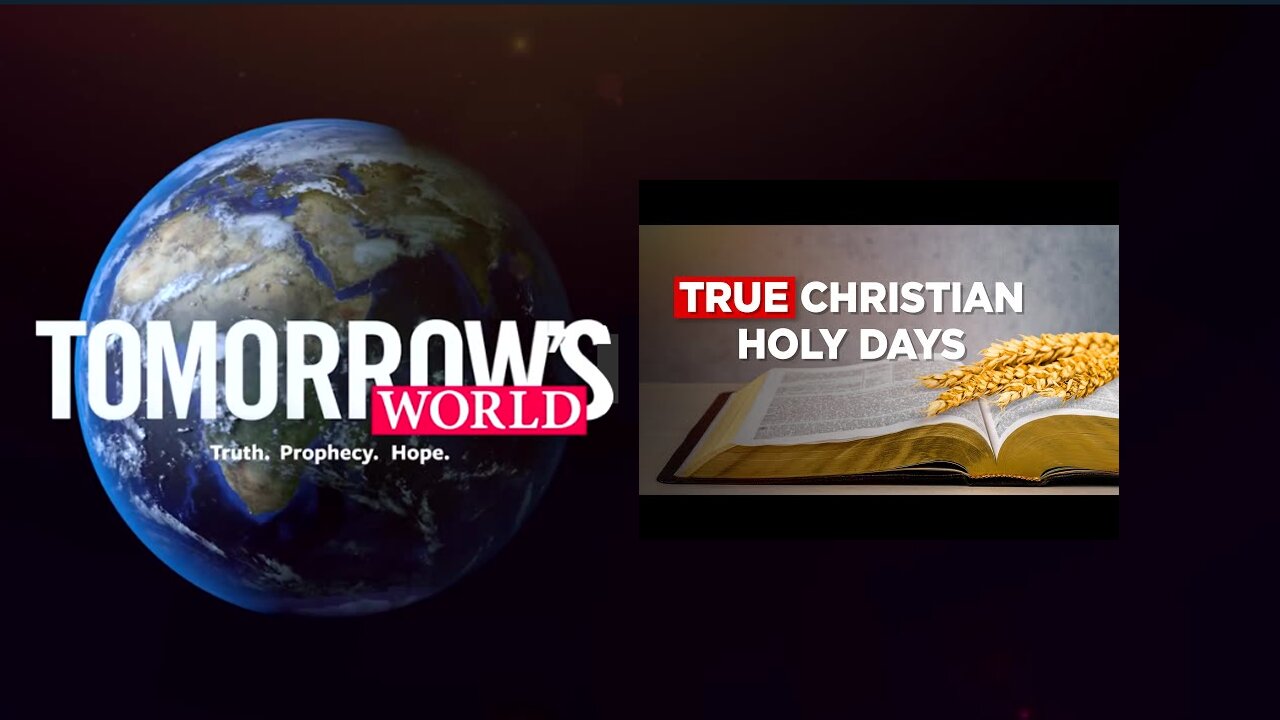
God’s Plan for You | What Is the Feast of Tabernacles (Sukkot)?
To learn more about God's Feast days, order your FREE copy: "The Holy Days: God's Master Plan" at no cost: https://bit.ly/3QNFwec. Why is this offer free of charge? It's our commitment to heed Jesus' directive to "freely give" (Matthew 10:8).
In this insightful video, Mr. Smith explores a biblical festival that remains largely unknown to many—The Feast of Tabernacles. Despite the widespread recognition of holidays like Christmas, Easter, and Halloween, this significant feast day is often overlooked. Mr. Smith delves into its meaning, biblical roots, and relevance for Christians today, providing a comprehensive understanding of why this autumn festival is vital.
Mr. Smith begins by highlighting the general ignorance surrounding the Feast of Tabernacles compared to well-known holidays. While Christmas, Easter, and Halloween are celebrated globally, many people, including Christians, are unfamiliar with this biblical feast. He emphasizes that the Feast of Tabernacles is not just a Jewish observance but is increasingly kept by Christians who seek a deeper understanding of God's holy days.
To set the stage, Mr. Smith offers a brief overview of the biblical holy days, starting with the Christian Passover, which commemorates Jesus as the Lamb of God. He explains that the Feast of Unleavened Bread teaches Christians to resist sin and live a new life with God's help. The Feast of Firstfruits, or Pentecost, marks the outpouring of the Holy Spirit on the early church. These holy days, outlined in both the Old and New Testaments, provide a framework for understanding God's plan.
Mr. Smith then focuses on the Feast of Tabernacles, a seven-day festival that follows the Day of Atonement. He describes it as a time that foreshadows 1,000 years of peace, prosperity, and abundance under the reign of Jesus Christ. This feast is a prophetic celebration of the coming Millennial Kingdom when Christ will rule the earth, bringing an end to violence and suffering. The symbolism of temporary dwellings (tents) reminds believers of the transient nature of life and the promise of a future, eternal kingdom.
The Feast of Tabernacles is not merely a time for celebration but also for spiritual reflection and growth. Mr. Smith notes that this period is about rejoicing in God's provision and looking forward to the peace and righteousness of Christ's future reign. He cites biblical prophecies from Isaiah that depict a world transformed under God's government, where justice and knowledge of the Lord will prevail.
Mr. Smith explains that early Christians, including Gentiles, observed these holy days, as evidenced by the New Testament. He highlights that even after the church's establishment, believers continued to honor these festivals. Looking to the future, he points to Zechariah's prophecy that all nations will eventually observe the Feast of Tabernacles when Christ returns, underscoring its ongoing significance.
Addressing the question of whether Christians should keep the Feast of Tabernacles, Mr. Smith suggests that observing this feast allows believers to align with God's will and gain a deeper appreciation of His plan. He encourages viewers to explore the biblical commands related to the feast and consider its profound spiritual and prophetic implications.
In conclusion, Mr. Smith invites viewers to embrace the Feast of Tabernacles as a time of joy, learning, and anticipation of Christ's reign. He offers a free study guide, "The Holy Days: God's Master Plan," for those interested in further exploring the biblical holy days. By understanding and observing the Feast of Tabernacles, Christians can connect more deeply with God's plan and look forward with hope to a future of peace and righteousness.
Questions that this video will answer.
1. What is the Feast of Tabernacles, and why is it significant for Christians today?
2. How does the Feast of Tabernacles relate to the broader biblical holy days?
3. What biblical evidence supports the observance of the Feast of Tabernacles by New Testament Christians?
4. What future events does the Feast of Tabernacles symbolize, according to biblical prophecy?
5. How can modern Christians apply the principles and lessons of the Feast of Tabernacles in their lives?
-
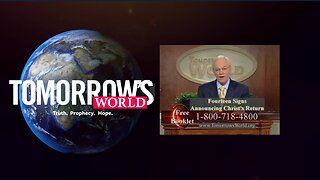 28:30
28:30
Tomorrow's World - Rumble
14 days agoJesus' Command to "Watch"!
9 -
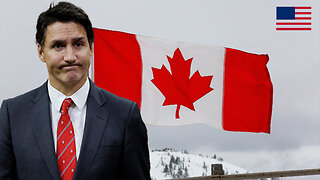 LIVE
LIVE
The Charlie Kirk Show
1 hour agoAfter Hegseth, RFK + The Fall of Trudeau? + Trannies On Teams | Sen. Scott, Lewandowski, Frei
8,942 watching -
 12:54
12:54
BlackDiamondGunsandGear
3 hours ago $0.02 earnedSpringfield Echelon: Game-Changer or Gimmick?
59 -
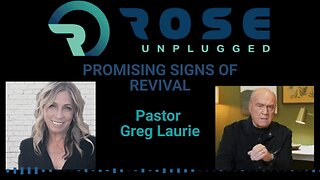 LIVE
LIVE
ROSE UNPLUGGED
18 hours agoPromising Signs of Revival
25 watching -
 LIVE
LIVE
The Dana Show with Dana Loesch
1 hour agoNEW DETAILS EMERGE IN WISCONSIN SCHOOL SHOOTING | The Dana Show LIVE On Rumble!
949 watching -
 31:00
31:00
Grant Stinchfield
59 minutes agoExposed: COVID Shots Loaded with Contaminated DNA
-
 LIVE
LIVE
TheAlecLaceShow
1 hour agoGuest: Rep. Warren Davidson | Trump Presser | NJ Drones | Judge Merchan denial | The Alec Lace Show
116 watching -
 59:27
59:27
The Dan Bongino Show
4 hours agoTrump Drops The Hammer At Press Conference (Ep. 2389) - 12/17/2024
482K1.28K -
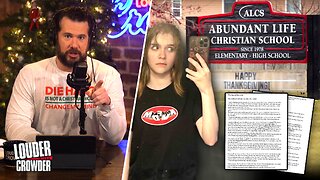 1:57:35
1:57:35
Steven Crowder
4 hours agoFemcel Shooter? Exploring Madison Shooting Myths One By One
288K159 -
 LIVE
LIVE
The Shannon Joy Show
5 hours ago🔥🔥LIVE Exclusive With Roger Ver's Co-Author Steve Patterson & Crypto Expert Aaron Day! Hijacking Bitcoin, The Blockchain Wars & Why This MATTERS To You.🔥🔥
392 watching